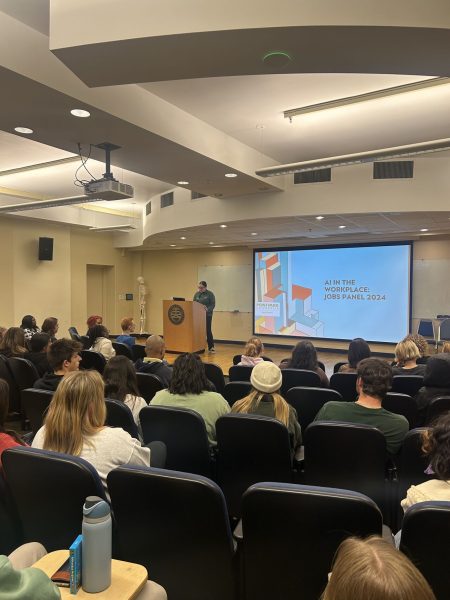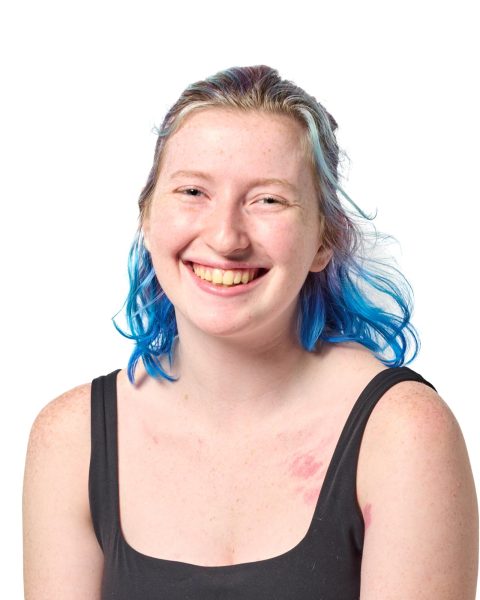The Honors program held a panel discussion for the Honors 299 course on Monday, Oct. 14. Discussion panels with the honors program are held every year for this course. The topic is selected by the honors president. This year, President Maegen Steiner chose artificial intelligence.
“I decided on AI because I’m a STEM major and previous topics have never really been STEM focused,” Steiner said. “I also wanted it to be a current real-world problem.”
Several speakers presented information about AI, including Dorene Ciletti. Ciletti said AI can be used in a variety of ways in higher education.
Artificial Intelligence can be used in student advising. Some universities have a chat bot or other elements of AI available to help advise students.
Universities can also use AI for operational processes too. AI can be used to manage climate in buildings and control lighting. AI is also used in adaptive learning.
“There are so many different kinds of AI and so many different applications using AI that you may have come in contact with,” Ciletti said.
Some of the many AI applications include autocorrect, Grammarly and ChatGPT. The design program Canva also now includes AI tools.
Shannon Gregg, president of Cloud Adoptions Solution, also presented. Gregg’s presentation included the framework for AI readiness.
Deciding, as a company, to start incorporating AI is the first step of the framework. By this, Gregg explained that a company can’t just decide to incorporate AI into the workplace without any planning.
Another step in the framework falls on leadership roles. It is the responsibility of every leader to talk about and inform their team of how they are going to use artificial intelligence.
The third step is called “change management initiative,” and deals with the fact that human beings don’t like change.
“On Tuesdays, in between your first and second class, you probably take the same path every day because it’s the path of least resistance,” Gregg said. “That happens in organizations as well.”
The last part of the framework is that employees want to reskill, which is to improve one’s work skills or gain new skills. Adults want to get better, Gregg said.
Even with this framework, many are still struggling with AI. Tracie York, an AI research consultant at T3 Advisory, talked about her experience with people and AI.
There are people ready to quit their jobs and hide in a corner, but there are also people who are making billions, York said.
York advises people against fearing AI.
“I think that we associate scary with not knowing, and that is not what you want to do,” York said. “I think there are real fears, but not everything about AI can be scary.”
York provided students who were present with a Metaverse link. After using it, students would be able to enter an online digital space where they could continue talking about AI, if they wanted to.
Joshua Maurer, a first-year civil engineering student, was one of the students who attended the discussion.
“I think it is important, mostly due to the prevalence of AI and how important it is going to become in the up-and-coming years,” Maurer said.
Sarah Lyons, a junior SAEM major, attended the panel for her honors course. Lyons says that she feels as though, whether we like it or not, AI is here to stay.
“We need to learn to take advantage of it and grow with it as it continues to advance,” Lyons said. “The risk of falling behind is honestly the scariest part.”

Courtesy of Point Park Honors Program







